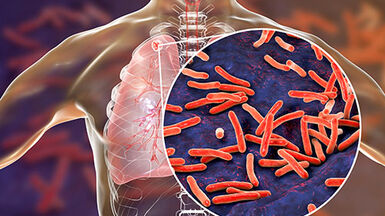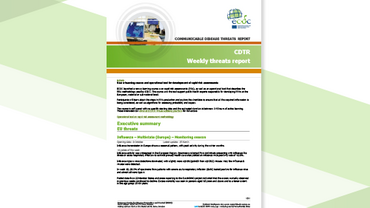Expert Opinion on the public health needs of irregular migrants, refugees or asylum seekers across the EU's southern and south-eastern borders
This is an Expert Opinion developed within a limited time scope to address urgent health needs related to the influx of migrants into the EU. The advice was requested by the European Commission who asked ECDC to focus on migrants entering the EU, particularly those who may be irregular or are applying for asylum or refugee status and who originate from Africa or the Middle East. The options to address health needs of migrants concentrated on actions which can be taken at the point of entry or after arrival.
Executive summary
Europe’s ongoing and increasing influx of migrants via its southern and south-eastern borders is posing new questions related to public health. In this Scientific Opinion, ECDC highlights some of the public health concerns and provides options for public health action.
The report highlights the needs of the addressed population: in the short-term, this can include access to clean and sanitary living conditions that are not overcrowded. Overcrowding creates conditions in which infectious diseases can more easily spread, which increases the potential for outbreaks of a range of communicable diseases.
Many of the biggest threats to health faced by migrants arriving or recently arrived in Europe come from exposure to European variants of vaccine-preventable diseases. By following up on current vaccination status, and offering vaccinations where necessary, countries may be able to limit the potential for outbreaks of diseases such as measles.
Health checkups for newly arrived migrants are currently taking place, in particular focusing on screening for tuberculosis. In some countries, screening for other diseases is also being carried out, depending on the country of origin of each migrant. The report highlights the importance of such screening, and suggests that other measures, such as general health education and health promotion, as well as allowing the conditions for good personal sanitation, are important in meeting the public health needs of irregular migrants, refugees or asylum seekers arriving in Europe.






